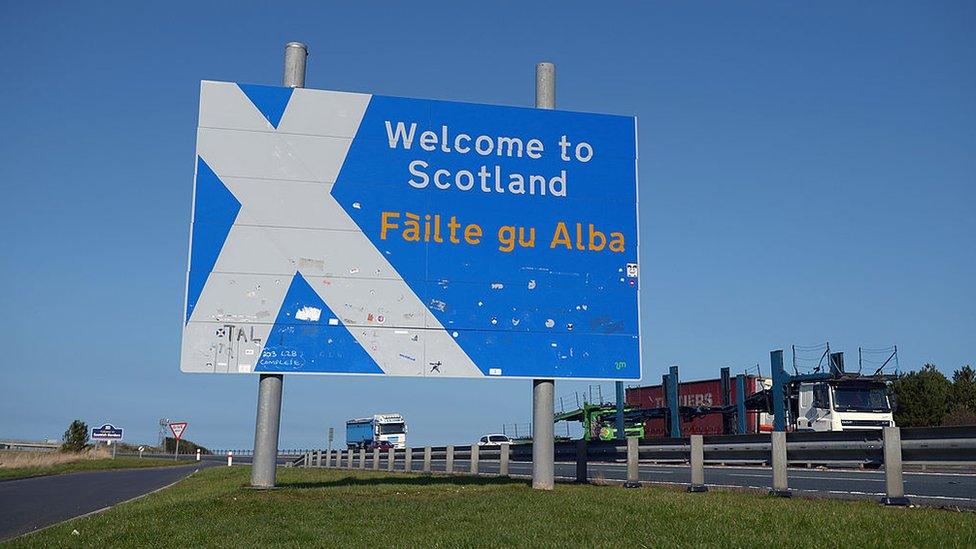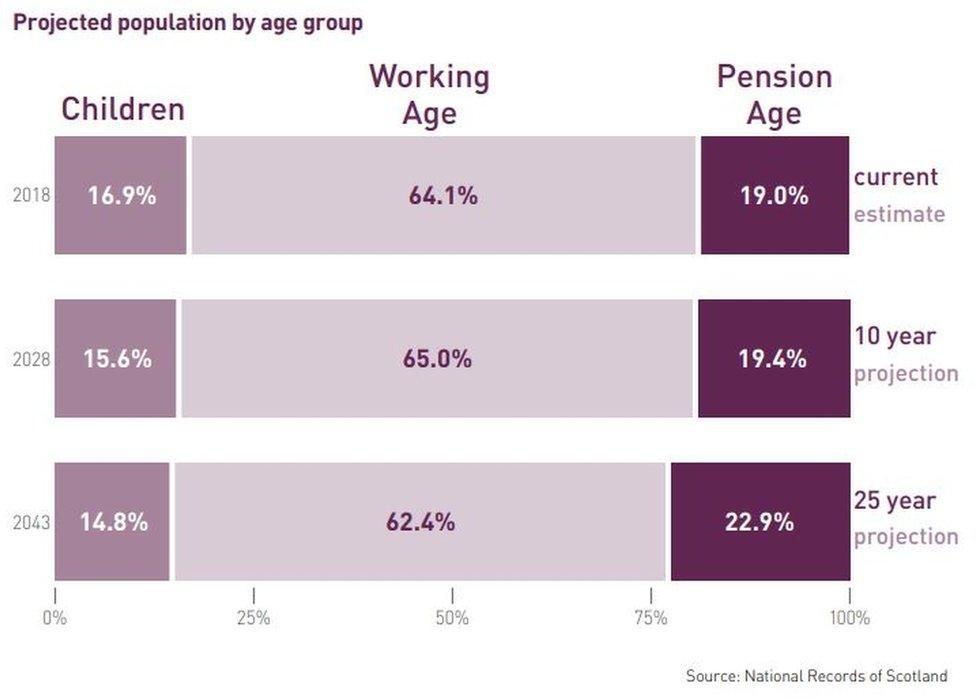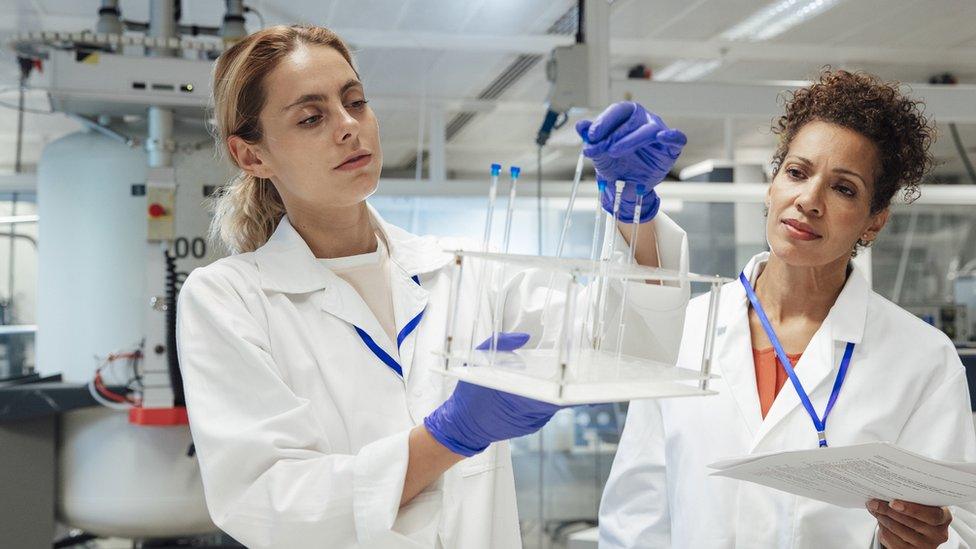Sturgeon calls for powers to set up 'Scottish visa' system
- Published
- comments

Nicola Sturgeon has called for powers to be devolved to Holyrood to set up a "Scottish visa" system designed to help boost immigration.
The first minister wants a "tailored" approach aimed at bringing people in to offset Scotland's ageing population.
However powers over immigration are currently reserved to Westminster.
The UK government has set out some of its plans for post-Brexit migration policy, promising fast-track entry for leading scientists and researchers.
Freedom of movement between the UK and the EU is expected to end after the Brexit transition period on 31 December, with UK ministers aiming to introduce a new points-based system thereafter.
The Scottish government has long campaigned for immigration powers to be held at Holyrood, with the SNP's manifesto for December's general election calling for a "tailored migration system" to respond to local demographic needs.
There are concerns about Scotland's ageing population and shrinking workforce, with the National Records of Scotland projecting that deaths could outweigh births over the next 25 years.
Scottish ministers say this means greater inward migration is needed to boost Scotland's working-age population in particular, and that an end to freedom of movement could threaten this.
However the UK government has always resisted the idea of devolving control over immigration, saying its plans will "work in the interests of the whole United Kingdom, including Scotland".
And the Migration Advisory Committee has said Scotland's needs are "not sufficiently different" from the rest of the UK to justify a "very different" system, with the north of England facing similar issues.

The National Records of Scotland predict Scotland's working-age population will shrink in the coming years
At present there are a number of different routes to securing a visa to enter the UK, ranging from schemes for skilled workers, students and investors to people with family already resident and those of "exceptional talent".
The system proposed by Ms Sturgeon would add a Scottish-specific visa, controlled from Holyrood, which new migrants could choose to apply for instead of one of the existing routes.
MSPs would decide the criteria for this new visa, and the Scottish government would receive and assess applications before sending them to the UK government for security checks.
Those applying for such a visa would need to remain resident in Scotland and pay tax locally, but would have a route to permanent settlement - unlike existing schemes for unskilled or temporary workers.
Ms Sturgeon said: "Migration is an issue which is crucial for our future, but the Scottish government doesn't currently have the powers needed to deliver tailored immigration policies for Scotland.
"Devolving immigration powers by introducing a Scottish visa would allow Scotland to attract and retain people with the skills and attributes we need for our communities and economy to flourish."
The proposed system would require extra powers to be devolved to Holyrood, but Ms Sturgeon said it could also be used in the event of Scotland becoming independent.
'Proud history'
The UK government aims to open its new fast-track system for scientists, researchers and mathematicians from 20 February.
Prime Minister Boris Johnson said the "global talent" system - which will replace the existing "exceptional talent" route - would put no cap on the number of people able to come to the UK, provided they work in a qualifying field and have been endorsed by a recognised UK body.
He said: "The UK has a proud history of scientific discovery, but to lead the field and face the challenges of the future we need to continue to invest in talent and cutting edge research.
"That is why as we leave the EU I want to send a message that the UK is open to the most talented minds in the world, and stand ready to support them to turn their ideas into reality."
The Lib Dems said the plan did not go far enough, saying that "changing the name of a visa and removing a cap that's never been hit is not a serious plan".
Meanwhile Scottish Labour gave a tentative welcome to Ms Sturgeon's plans, saying they "support exploring a degree of flexibility within an overarching UK immigration system".
- Published27 January 2020

